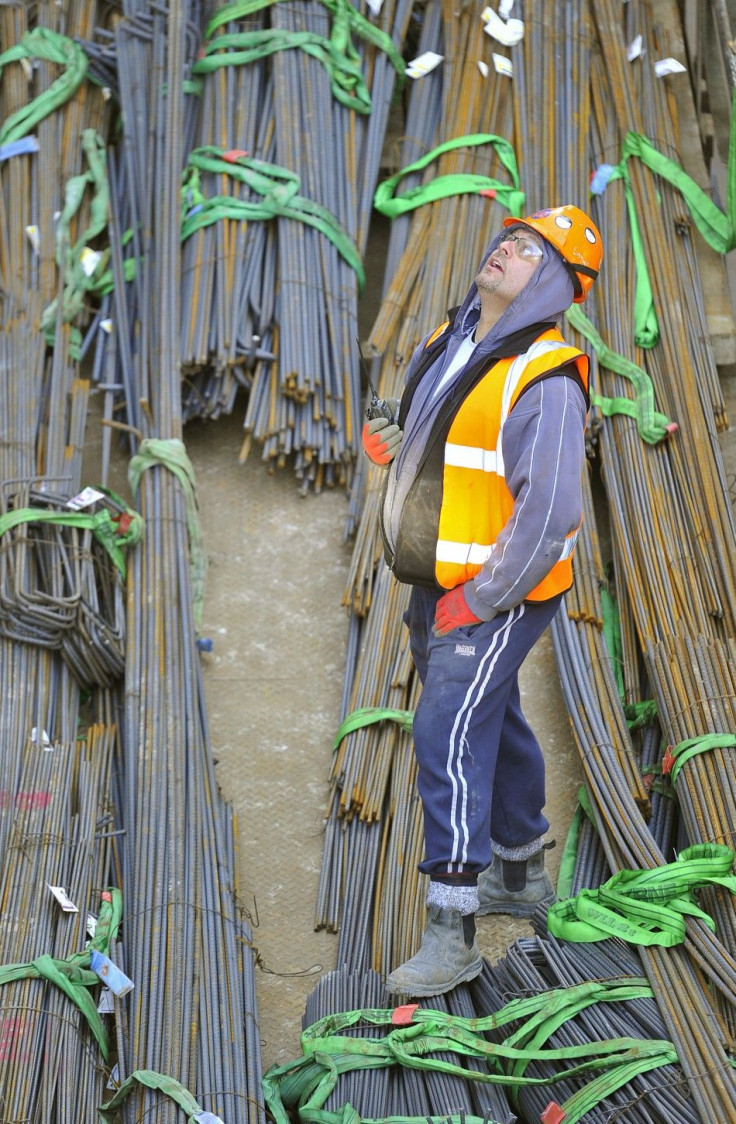UK producer prices surge in January

Factory gate inflation rose twice as fast as expected last month, and the cost of raw materials soared, heaping pressure on the Bank of England to raise interest rates sooner rather than later.
Evidence that pipeline inflation pressures are continuing to build will worry Bank policymakers at a time when consumer price inflation is nearly double its 2 percent target and still rising.
The Office for National Statistics said producer input prices rose 13.4 percent on the year in January, the biggest annual rise since October 2008 and well above forecasts for an annual rate of 12.6 percent.
Producer output prices rose 4.8 percent on the year, the highest annual rate since May 2010. On the month prices jumped one percent, double what economists had predicted.
This is one more troubling piece of evidence for the Monetary Policy Committee to consider when weighing up the inflation story, said Brian Hilliard, UK economist at Societe Generale.
It appears manufacturers are gaining increasing pricing power.
Britain's central bank is having to juggle soaring price pressures with a fragile economic recovery and it held interest rates steady this week at 0.5 percent, the record low they have stood at since March 2009.
Bank Governor Mervyn King maintains that inflation is being driven by external factors over which the central bank has no control, and one-off domestic factors such as the rise in value added tax.
However, two of the nine-member rate-setting committee are worried that inflation may become entrenched and voted in January for an immediate rate rise. That helped push markets to price in an outside chance of a rise in rates this week and a quarter-point move is fully priced in by May, plus at least one more before the end of the year.
HIGHER RATES IN THE OFFING?
The Bankl will publish updated quarterly inflation and growth forecasts on Wednesday that will give further insight into its thinking but investors are betting it won't be able to hold fire for long.
Figures next week are likely to show consumer price inflation notched 4 percent in January as a rise in value added tax added to pressure from surging oil and commodity prices.
George Buckley at Deutsche Bank noted there was an 80 percent correlation between annual consumer and producer price inflation, and predicted average British consumer price inflation in Britain would average more than 4 percent over 2011 as a whole.
Producer prices rose more than expected in January on all measures, he said.
The ONS said the rise in input prices was mainly driven by a 28.8 percent annual rise in the price of crude oil -- the biggest increase since May 2010. The recent rise in commodity prices also played a role. Imported metals prices were up over 26 percent on the year.
UK inflation figures have repeatedly surprised to the upside in recent months and there was little market reaction to Friday's data.
© Copyright Thomson Reuters {{Year}}. All rights reserved.





















